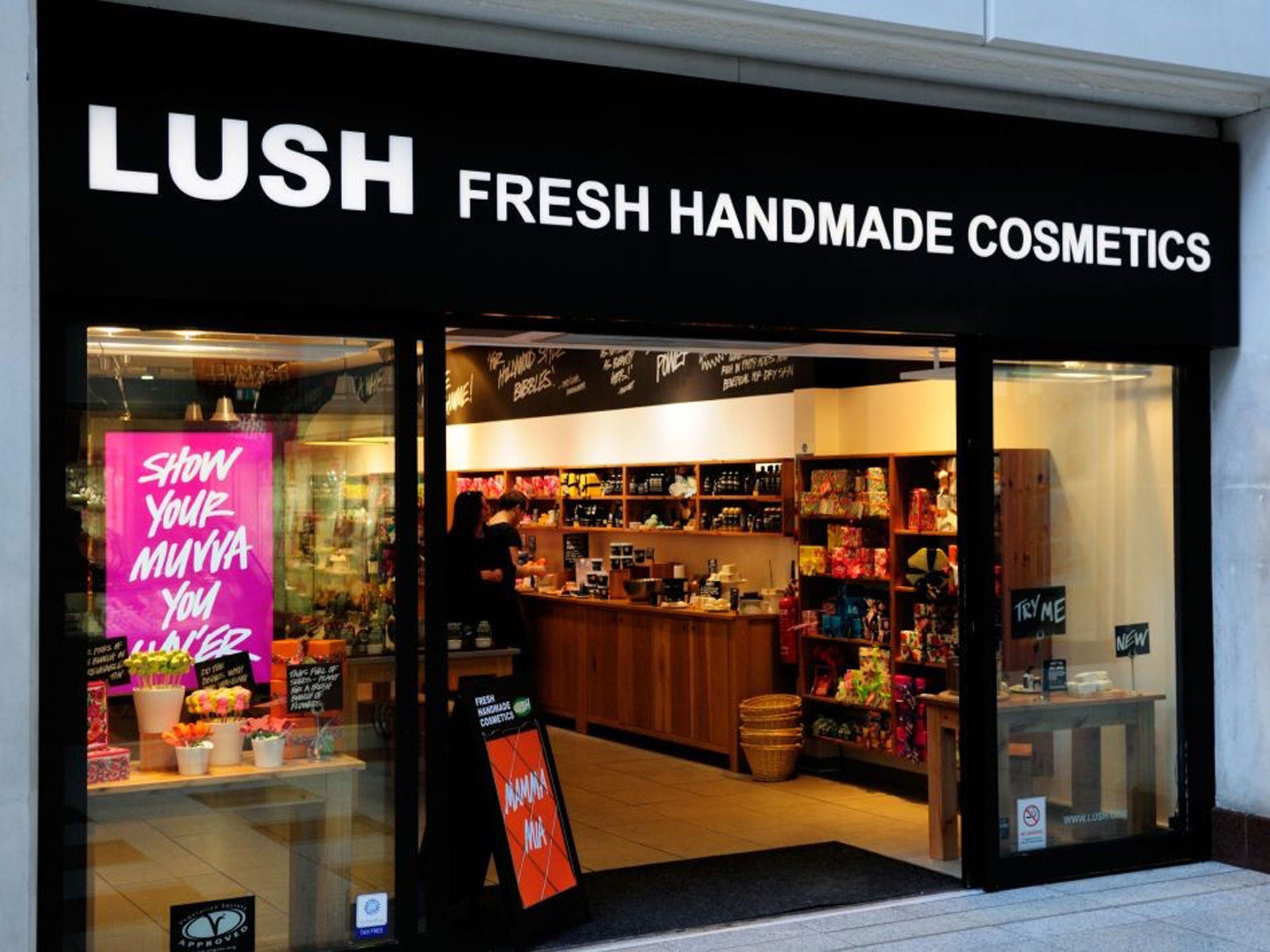Cosmetics chain Lush stands up for gay rights in run up to Sochi Winter Olympics
As the Sochi games approach, Lush stores around the world will be running a Valentine’s campaign in defence of equal love

Your support helps us to tell the story
From reproductive rights to climate change to Big Tech, The Independent is on the ground when the story is developing. Whether it's investigating the financials of Elon Musk's pro-Trump PAC or producing our latest documentary, 'The A Word', which shines a light on the American women fighting for reproductive rights, we know how important it is to parse out the facts from the messaging.
At such a critical moment in US history, we need reporters on the ground. Your donation allows us to keep sending journalists to speak to both sides of the story.
The Independent is trusted by Americans across the entire political spectrum. And unlike many other quality news outlets, we choose not to lock Americans out of our reporting and analysis with paywalls. We believe quality journalism should be available to everyone, paid for by those who can afford it.
Your support makes all the difference.More than 700 cosmetics shops in 40 countries around the world will be promoting gay rights in the run-up the Winter Olympics. But, strikingly, Russian stores will not.
In its Valentine’s campaign, to be launched tomorrow, Lush’s stores will display signs proclaiming “We believe in Love”. Staff will also encourage customers to paint pink triangles on their bodies as a symbol of support for equal love. Yet the campaign, a response to Russia’s anti-gay legislation, would be at risk of violating the country’s “homosexual propaganda” law if the signs appeared in any of the retailer’s 63 Russian shops.
President Putin’s laws ban the promotion of “non-traditional sexual relations” among minors, and is purposefully broad. In effect it means teachers cannot tell their students that gay and straight relationships are equal; parents cannot tell their children being LGBT is normal; and people cannot distribute material promoting gay rights.
Lush often uses its front windows to campaign against social injustice and will also be organising an LGBTQ (Lesbian, gay, bisexual, transgender and questioning) “carnival” to be held outside the Russian embassy in London on Valentine’s Day. Gay and lesbian groups in Russia have reported a rise in homophobic violence since anti-gay laws were passed last year – with reports of growing vigilante groups hunting LGBTQ people out on the ground and online.
“Valentine’s Day is the perfect to time to stand up [for] everyone’s right for love. No country, company, or individual can stop love; all they can do is punish people for that love,” said Tamsin Omond, head of Lush campaigns. “To do so – to forbid or criminalise love – is unnatural and cruel, so I am proud that we are standing in solidarity with LGBTQ people and campaigning for equal love.”
The gay rights campaigner Peter Tatchell told The Independent on Sunday that Lush’s “proactive stand” contrasts “with the silence and inaction of Winter Olympics sponsors like Coca Cola, McDonald’s and Visa. They have shown great cowardice by refusing to make any public statement criticising Russia’s anti-gay laws and the escalating levels of homophobic violence in Russia.”
Pressure on President Putin to drop the laws is mounting. Last week, Elton John wrote on his website that the legislation is “proving deeply dangerous to the LGBT community”. He added that his last trip to Russia, a month ago, had “reinforced all the media stories that have been circling since the propaganda bill became federal law: that vicious homophobia has been legitimised… and given extremists the cover to abuse people’s basic human rights”.
Richard Lane, from the gay rights campaign group Stonewall, welcomed Lush’s campaign, but said “solidarity and support” for LGBT activists must be kept up once the Olympics ends.
Mr Lane added that Russian LGBT activists “do not support cancelling, withdrawing [or] boycotting the Games in any way. They are very keen for people to visit the country, particularly political figures, and raise their concerns about it.”
He added: “We would certainly hope that the IOC [International Olympic Committee] is raising their concerns about homophobia in the country [and] we would certainly hope that the British government is raising their concerns about it.”
Join our commenting forum
Join thought-provoking conversations, follow other Independent readers and see their replies
Comments